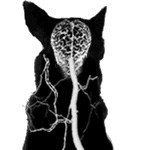Search - News & Events
11 - 20 of 205 results
-
World first, RVC finds cognitive impairments in dogs with epilepsy
A series of pioneering research studies from the Royal Veterinary College (RVC) into dogs with epilepsy have revealed that: Dogs with epilepsy find it harder to obey commands, are slower to learn new tricks, have spatial memory deficits and are easily distracted. Aversive training methods, such as bark-activated collars, prong collars and verbal punishment are associated with poor trainability and their use should be avoided. Some anti-epileptic drugs (the medications commonly used to treat seizures) were found to worsen the cognitive impairment of dogs with epilepsy. Dogs with greater exposure to training activities, including obedience classes, agility, and gun-dog training, were found to be associated with higher trainability and have fewer signs of cognitive dysfunction.You can’t teach epileptic dogs new tricks? A series of pioneering research studies from the Royal …
-
RVC research finds memory-boosting effects of a dietary supplement for cognitively-impaired dogs with epilepsy
Changing the fat profile of the diet of dogs with hard-to-treat epilepsy can not only improve their seizure control, but also their cognitive abilitiesNew research from the Royal Veterinary College (RVC), funded by The American Kennel Club Canine …
-
Study reveals substantial negative impacts on owners’ lives when their dog develops epilepsy
The qualitative study, led by the RVC, explored the impact of owning a dog with epilepsy, aiming to provide better support and resources to help improve owner quality of lifeA study led by the Royal Veterinary College (RVC), which explored the impact of owning a dog with …
-
VetCompass study reveals new insights on seizures and epilepsy in cats
Neurological disorders are supposedly a leading cause of death in cats but, until now, there has been little information on how commonly cats are affected by seizure disorders or epilepsy. The latest VetCompass study shines new light on these … -
VetCompass study examines the association between neutering and idiopathic epilepsy in Labradors and Border collies
There is sparse published scientific data on the associations between neutering and the severity and survival of dogs with idiopathic epilepsy. This study used VetCompass™ data on 117 Labrador retrievers and 57 Border collies, diagnosed with … -
Canine Dystocia: Prevalence and Risk Factors
Newly published article - Canine dystocia in 50 UK first-opinion emergency-care veterinary practices: prevalence and risk factors. Canine dystocia is a common presentation in emergency-care veterinary practice. The objectives of this study were to … -
New BBSRC grant: Investigating the relationship between epilepsy, drug-resistance and affective disorders in the domestic dog
Investigating the relationship between epilepsy, drug-resistance and affective disorders in the domestic dogA new BBSRC grant has been awarded to Prof Holger Volk, Dr Rowena Packer and Dr Rachel Casey …
-
VetCompass at the first international Canine Behaviour & Genetics meeting
The implications of consistently producing or selecting dogs which are not appropriately 'fit for function' both mentally and physically are manifold, with detrimental effects on canine welfare, economic investments and the integrity of the human- … -
International Canine Health Postgraduate Student Inspiration award
Congratulations to Alice Denyer, who has won the Kennel Club's International Canine Health Postgraduate Student Inspiration award to help further her research into the genetic differences between individual dog breeds that are susceptible to …Congratulations to Alice Denyer, who has won the Kennel Club's International Canine Health …
-
The RVC calls for canine health research funding data
Researchers at the Royal Veterinary College (RVC) are calling on specialist veterinary and non-university organisations that carry out research into canine health and welfare to participate in a study which seeks to inform future funding strategies. …









%20PA-Jeff%20Spicer.JPG?v=638497413237594817)
